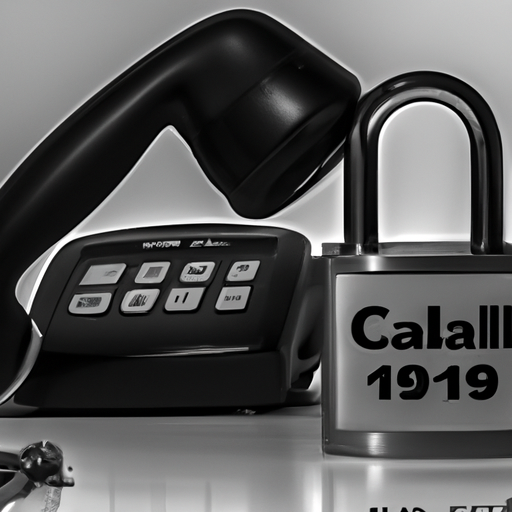Telesales, an integral part of modern-day business operations, has become a critical tool for organizations to connect with potential customers. However, the very nature of telesales presents unique challenges when it comes to compliance with legal regulations. This article aims to provide business owners and executives with a comprehensive understanding of telesales compliance, shedding light on the key legal considerations, best practices, and the potential consequences of non-compliance. By delving into the intricacies of this topic, we aim to equip readers with the necessary knowledge to ensure their telesales practices remain within the confines of the law, protecting their businesses and mitigating risk.
Telesales Compliance
Telesales compliance refers to the adherence of legal and regulatory requirements in telesales activities. Telesales, also known as telephone sales, involves marketing and selling products or services over the phone. As a business engaged in telesales, it is crucial to understand and comply with the various laws and regulations to avoid legal issues and maintain ethical business practices.

1. Overview of Telesales Compliance
1.1 What is Telesales Compliance?
Telesales compliance encompasses the set of rules and regulations that govern telesales activities. It ensures that businesses engaged in telesales operate within legal boundaries and adhere to consumer protection laws. Compliance involves obtaining prior consent from customers, following specific call regulations, scripting and training telesales representatives, recording and monitoring calls, and handling complaints appropriately.
1.2 Importance of Telesales Compliance
Compliance with telesales regulations is crucial for businesses as it helps maintain consumer trust and protects businesses from legal issues. By complying with the laws and regulations, businesses can avoid fines, penalties, and damage to their reputation. Moreover, adhering to compliance standards ensures ethical business practices and fosters positive customer experiences.
1.3 How Telesales Compliance Impacts Businesses
Telesales compliance has a significant impact on businesses. Non-compliance can result in legal consequences, including substantial fines and penalties. Moreover, businesses that do not comply with telesales regulations risk damaging their reputation, which can lead to decreased customer trust and loyalty. On the other hand, businesses that prioritize compliance can benefit from enhanced customer satisfaction, increased sales, and a positive brand image.
2. Legal Requirements for Telesales
Telesales activities are subject to specific legal requirements that vary from country to country. It is essential for businesses engaged in telesales to understand and comply with these legal requirements to avoid legal issues and maintain ethical business practices.
2.1 National and International Laws
Telesales activities are governed by national and international laws that protect consumer rights and regulate marketing practices. These laws often address consumer privacy, consent requirements, disclosure of information, and prohibited practices. Businesses must familiarize themselves with laws such as the Telephone Consumer Protection Act (TCPA) in the United States, the General Data Protection Regulation (GDPR) in the European Union, and similar laws in their respective countries.
2.2 Regulatory Bodies and Agencies
Regulatory bodies and agencies oversee telesales activities and ensure compliance with the relevant laws and regulations. These bodies may have the authority to investigate complaints, enforce penalties, and provide guidance on how telesales should be conducted within the legal framework. Businesses should be aware of the regulatory bodies in their jurisdiction and maintain regular contact to stay updated on any regulatory changes.
2.3 Compliance with Consumer Protection Laws
Telesales activities must comply with consumer protection laws to safeguard consumers’ rights. These laws typically require clear and accurate disclosure of information, protection against fraudulent practices, fair treatment of consumers, and privacy protection. By adhering to these laws, businesses can build trust with their customers and establish long-term relationships.
3. Telesales Call Regulations
Telesales call regulations govern the manner in which telesales calls are conducted. These regulations outline the rules and restrictions that telesales representatives must follow during their interactions with customers.
3.1 Telephone Consumer Protection Act (TCPA)
The Telephone Consumer Protection Act (TCPA) is a key law in the United States that regulates telesales calls. The TCPA requires telesales representatives to obtain prior express written consent from consumers before making automated or pre-recorded calls. It also regulates the use of autodialers and artificial or prerecorded voice messages. Understanding and complying with the TCPA is essential for businesses engaged in telesales activities within the United States.
3.2 Federal Trade Commission (FTC) Rules
The Federal Trade Commission (FTC) has established rules and regulations to protect consumers from deceptive and unfair telesales practices. These rules require telesales representatives to identify themselves, disclose the purpose of the call, and provide correct and truthful information. The FTC also prohibits misleading statements, false claims, and unfair business practices in telesales calls.
3.3 State-Specific Telesales Call Regulations
In addition to federal regulations, businesses must also comply with state-specific telesales call regulations. Some states may have additional requirements and restrictions on telesales activities, including calling hours, calling frequency, and pre-call disclosures. It is important for businesses to be aware of these state-specific regulations and ensure compliance when conducting telesales calls.
4. Obtaining Prior Consent
Obtaining prior consent is a fundamental aspect of telesales compliance. It is necessary to secure the permission of customers before making telesales calls, particularly when using automated or pre-recorded messages.
4.1 Consent Requirements
Consent requirements may vary depending on the applicable laws and regulations. However, in general, businesses should aim to obtain clear and express consent from customers before initiating telesales calls. Consent should be freely given, specific, informed, and unambiguous. It is important to provide customers with sufficient information about the purpose of the call and any data processing activities that may occur.
4.2 Documenting Consent
Businesses must document and maintain records of the consent obtained from customers. These records serve as evidence of compliance in case of any legal or regulatory inquiries. The documentation should include the date and time of consent, the method used to obtain consent, and any other relevant information required by the applicable laws and regulations.
4.3 Consent Practices for Pre-Recorded Calls
When using pre-recorded messages in telesales calls, businesses must ensure that they have obtained explicit consent from customers. In addition, the pre-recorded message should include clear instructions on how customers can opt-out or unsubscribe from receiving further calls. Providing customers with an easy and accessible way to opt-out demonstrates respect for their preferences and helps maintain compliance.

5. Telesales Scripting and Training
Telesales scripting and training play a vital role in ensuring compliance with telesales regulations. Properly crafted scripts and comprehensive training for telesales representatives can help minimize compliance risks and enhance the quality of customer interactions.
5.1 Compliance-Oriented Scripting
Telesales scripts should be designed with compliance in mind. Scripts should include accurate and truthful information about the products or services being offered. It is important to avoid misleading statements, false claims, and any information that may violate consumer protection laws. Regular review and updates to telesales scripts are necessary to address any changes in laws or regulations.
5.2 Providing Proper Training to Telesales Representatives
Training is crucial to ensure that telesales representatives understand and adhere to compliance standards. Training sessions should cover relevant laws and regulations, ethical practices, disclosure requirements, and proper handling of customer objections. Ongoing training programs can help enhance the knowledge and skills of telesales representatives, enabling them to conduct telesales calls effectively and ethically.
5.3 Monitoring Script Adherence
Regular monitoring of telesales calls and script adherence is essential to identify any potential compliance issues or deviations. Supervisors or quality assurance teams should regularly review recorded calls and provide feedback to telesales representatives. Monitoring and feedback sessions can help address any non-compliant behaviors, improve script adherence, and ensure consistent compliance with telesales regulations.
6. Recording and Monitoring Calls
Recording and monitoring telesales calls is an important practice for compliance purposes. It allows businesses to ensure that telesales representatives are following regulatory requirements and provide evidence in case of any disputes or complaints.
6.1 Legal considerations for Call Recording
Businesses must ensure compliance with laws and regulations regarding call recording. In some jurisdictions, consent may be required before recording calls, while in others, businesses may be required to provide notice to customers about the recording. It is essential to understand the legal requirements specific to the jurisdiction in which the telesales calls are being made.
6.2 Monitoring and Analyzing Recorded Calls
Recorded calls should be regularly monitored and analyzed to identify any compliance issues, assess the quality of customer interactions, and provide feedback to telesales representatives. Monitoring and analyzing recorded calls can help identify areas for improvement, address non-compliant behaviors, and ensure adherence to telesales regulations.
6.3 Ensuring Call Quality and Compliance
Regular monitoring of telesales calls helps ensure call quality and compliance. It allows businesses to monitor the performance of telesales representatives, identify any training needs, and maintain consistency in adherence to telesales regulations. By focusing on call quality and compliance, businesses can enhance customer satisfaction and build trust with their customers.
7. Call Monitoring and Quality Assurance
Call monitoring and quality assurance processes are important components of telesales compliance. These processes help businesses maintain compliance with telesales regulations and ensure high-quality interactions with customers.
7.1 Role of Quality Assurance in Telesales Compliance
Quality assurance plays a vital role in telesales compliance by monitoring and evaluating telesales calls. Quality assurance teams assess the adherence of telesales representatives to compliance standards, the quality of customer interactions, and the effectiveness of telesales strategies. They provide valuable feedback and recommendations to improve compliance and overall telesales performance.
7.2 Best Practices for Monitoring and Evaluating Telesales Calls
To effectively monitor and evaluate telesales calls, businesses should establish specific best practices. These may include setting quality standards, defining key performance indicators, and implementing call evaluation criteria. It is also beneficial to provide timely feedback to telesales representatives and offer coaching or training sessions to address any identified areas for improvement.
7.3 Addressing Non-Compliant Behaviors
In cases where non-compliant behaviors are identified during call monitoring, it is crucial to address them promptly and take appropriate actions. This may involve additional training, disciplinary measures, or changes in telesales strategies. By addressing non-compliant behaviors, businesses can reinforce the importance of telesales compliance and maintain ethical business practices.
8. Telesales Do-Not-Call Lists
Telesales compliance includes compliance with do-not-call lists, which are meant to protect consumers from unwanted telesales calls. Businesses must be aware of these lists and follow the regulations surrounding them to prevent calling individuals who have opted out of receiving telesales calls.
8.1 Understanding Do-Not-Call Lists
Do-not-call lists are databases that contain the contact information of individuals who do not wish to receive telesales calls. These lists may be maintained at the national or state level, and businesses are expected to regularly consult and update their calling lists to omit numbers listed on the do-not-call lists.
8.2 Compliance with National and State Do-Not-Call Regulations
Businesses engaged in telesales activities should comply with both national and state do-not-call regulations. These regulations typically require businesses to have an internal do-not-call policy, provide training to telesales representatives regarding the do-not-call regulations, and regularly scrub their calling lists against the national and state do-not-call lists.
8.3 Maintaining an Internal Do-Not-Call List
In addition to complying with national and state do-not-call lists, businesses should maintain an internal do-not-call list. This list should include the contact details of individuals who have requested not to be contacted for telesales purposes. By maintaining an internal do-not-call list, businesses can ensure their telesales efforts respect individual preferences and comply with telesales regulations.

15. FAQs about Telesales Compliance
15.1 What is the purpose of telesales compliance?
The purpose of telesales compliance is to ensure businesses adhere to legal and regulatory requirements when conducting telesales activities. It aims to protect consumer rights, maintain ethical business practices, and avoid legal issues or penalties.
15.2 Do all businesses need to comply with telesales regulations?
Yes, all businesses engaged in telesales activities need to comply with telesales regulations. Compliance is necessary to protect consumer privacy, maintain trust, and operate within legal boundaries.
15.3 How can businesses obtain prior consent for telesales calls?
Businesses can obtain prior consent by clearly and explicitly asking customers for permission to make telesales calls. Consent should be freely given, specific, informed, and unambiguous. It is important to document and maintain records of the obtained consent.
15.4 What should be included in telesales scripting?
Telesales scripting should include accurate and truthful information about the products or services being offered. It should avoid misleading statements, false claims, and any information that may violate consumer protection laws. Regular review and updates to telesales scripts are necessary to address any changes in laws or regulations.
15.5 How can companies ensure telesales representatives adhere to compliance standards?
Companies can ensure telesales representatives adhere to compliance standards through proper training and monitoring. Comprehensive training programs should cover relevant laws and regulations, ethical practices, disclosure requirements, and proper handling of customer objections. Regular monitoring and feedback sessions help reinforce compliance and identify areas for improvement.
